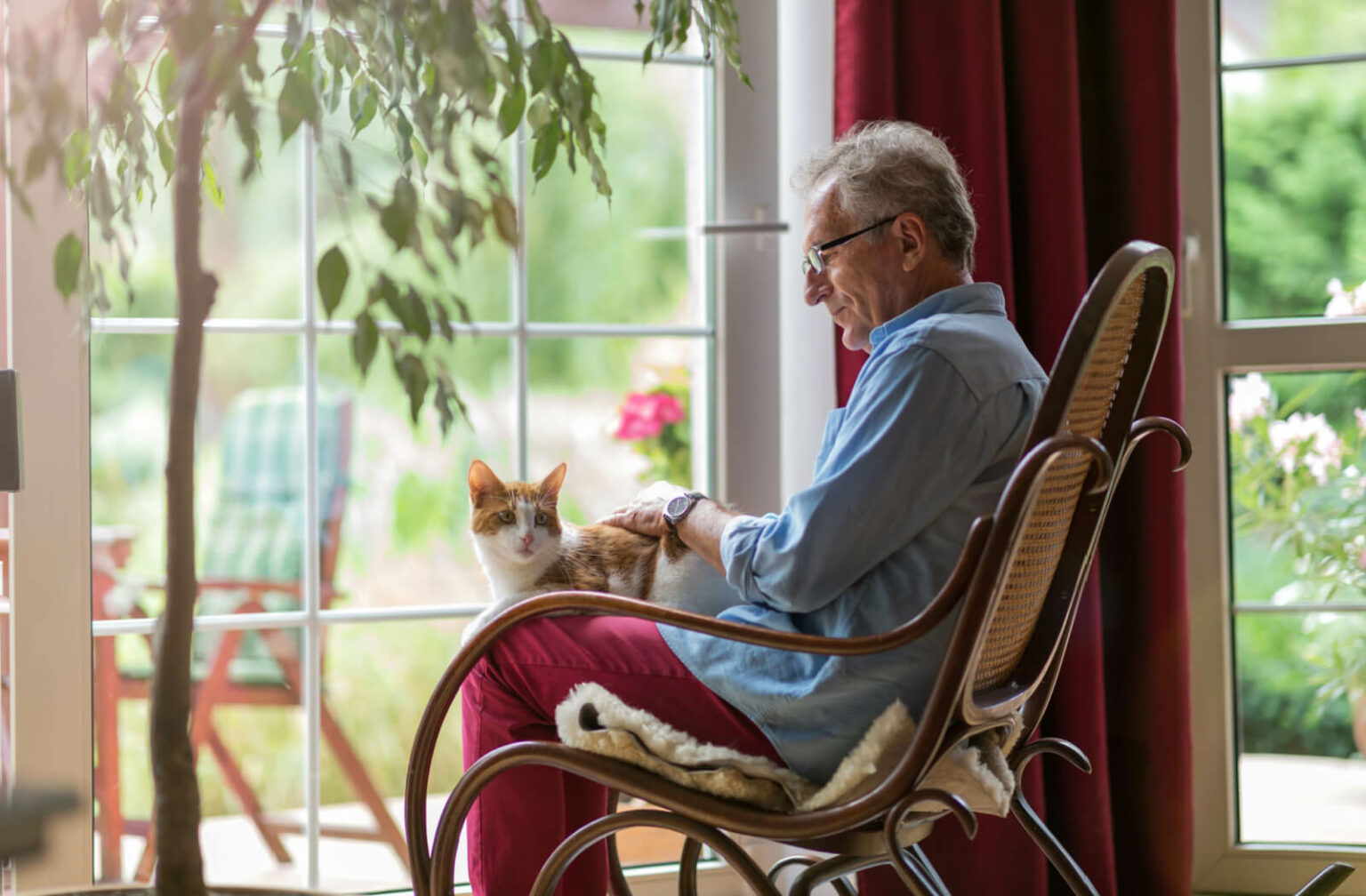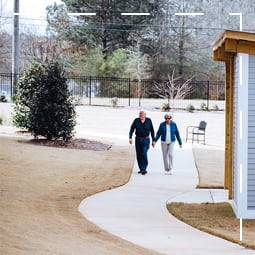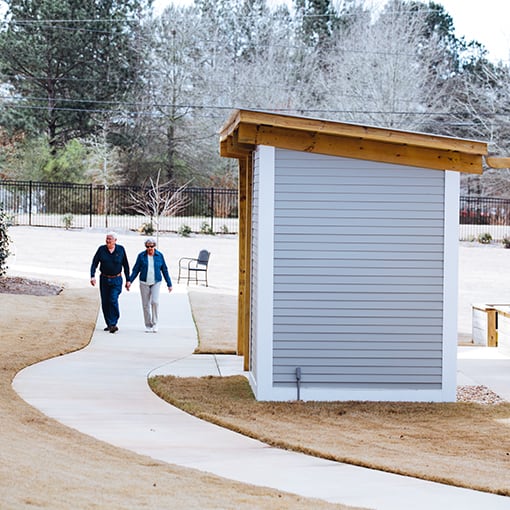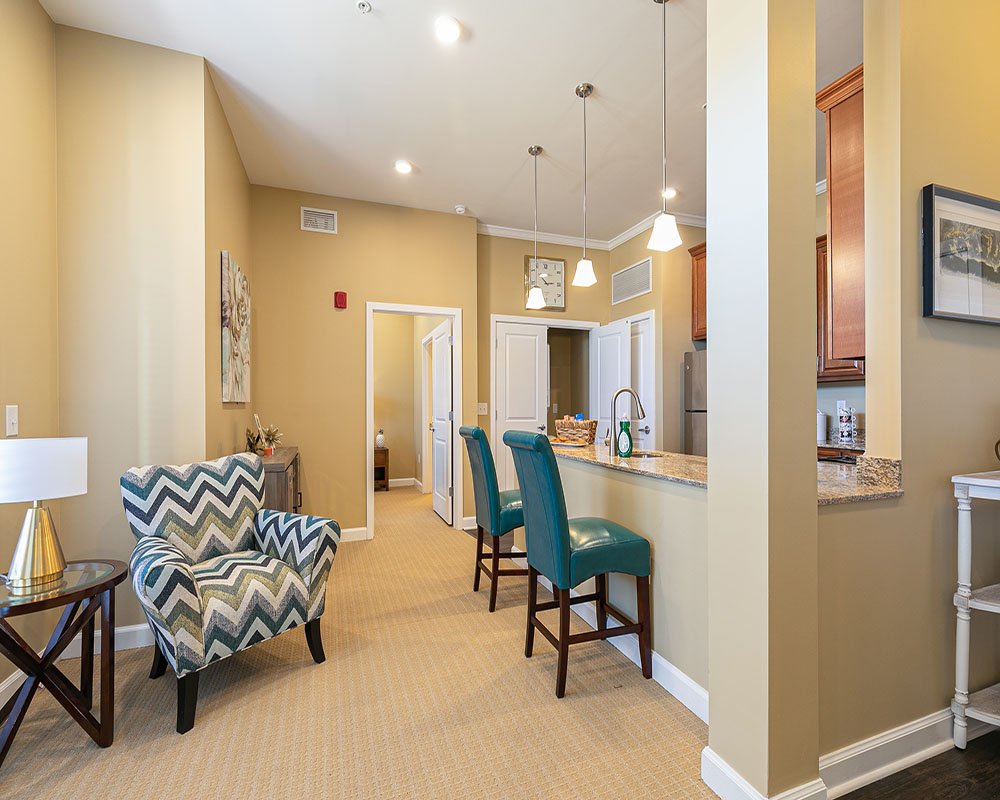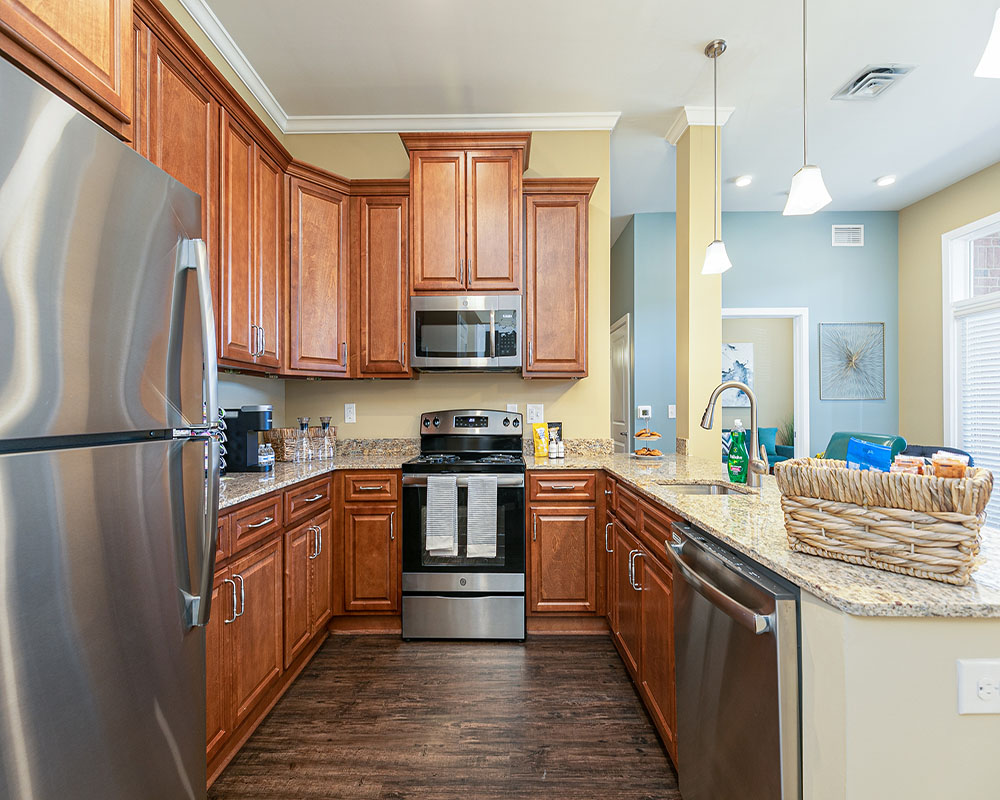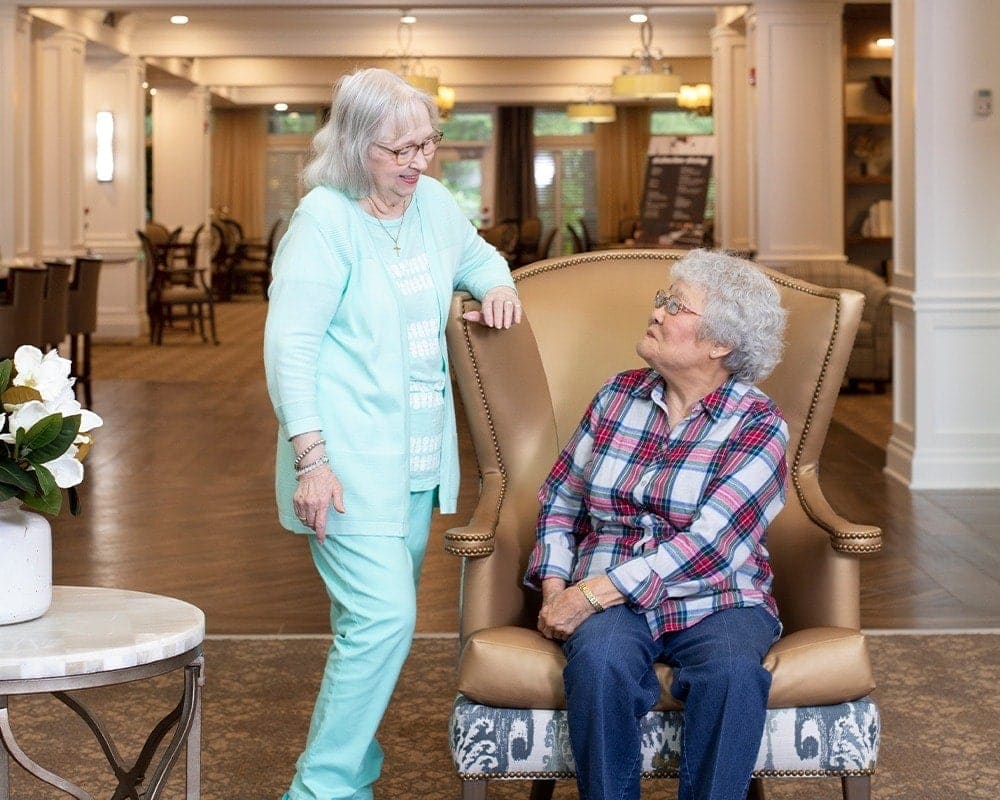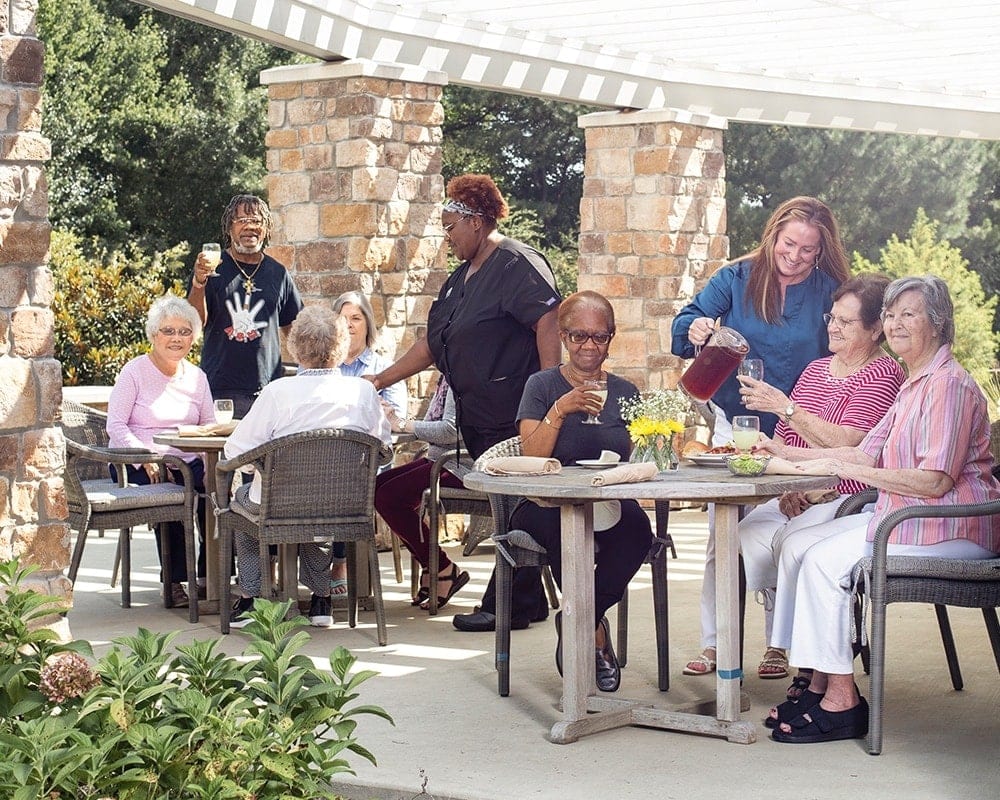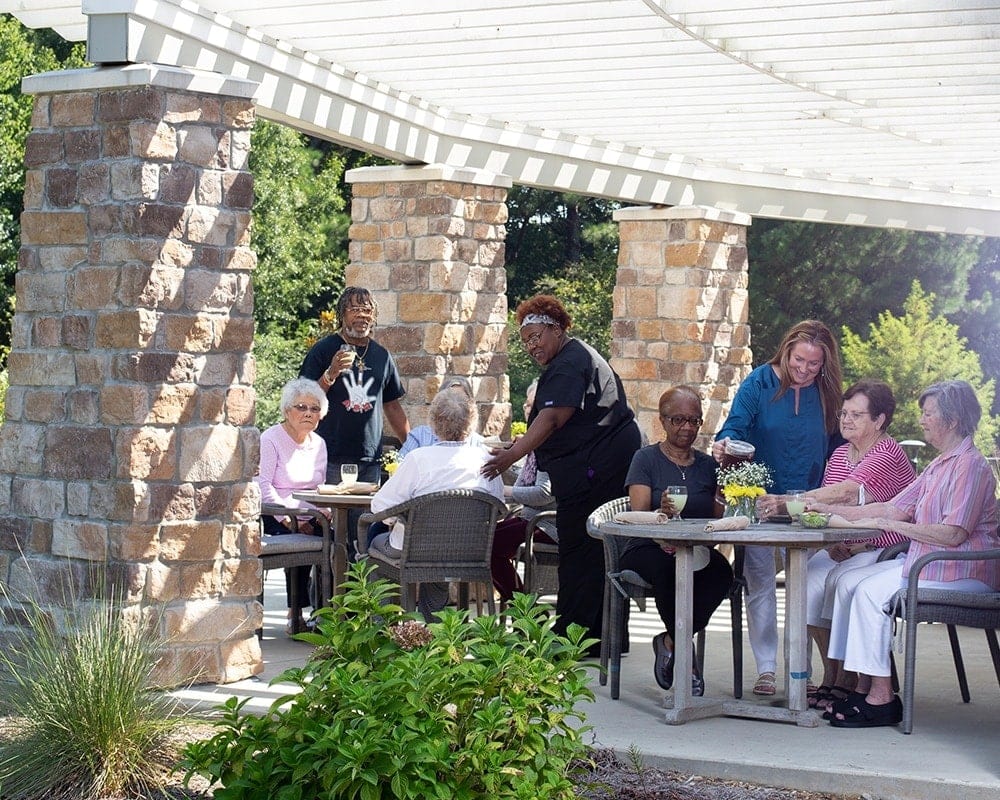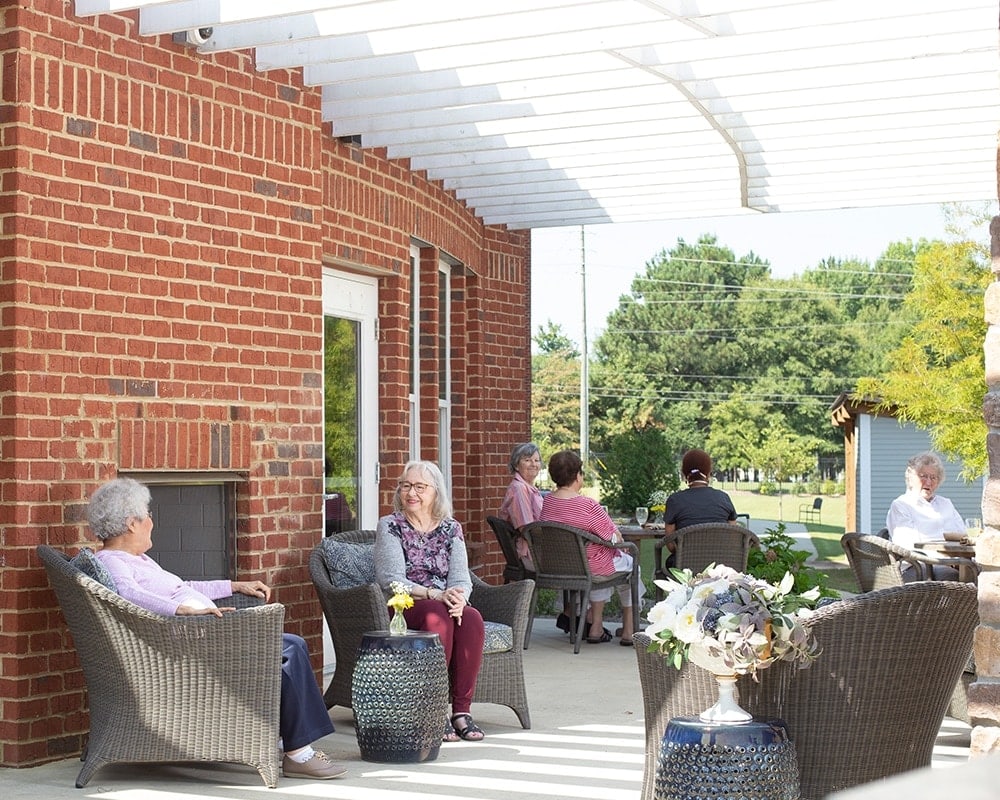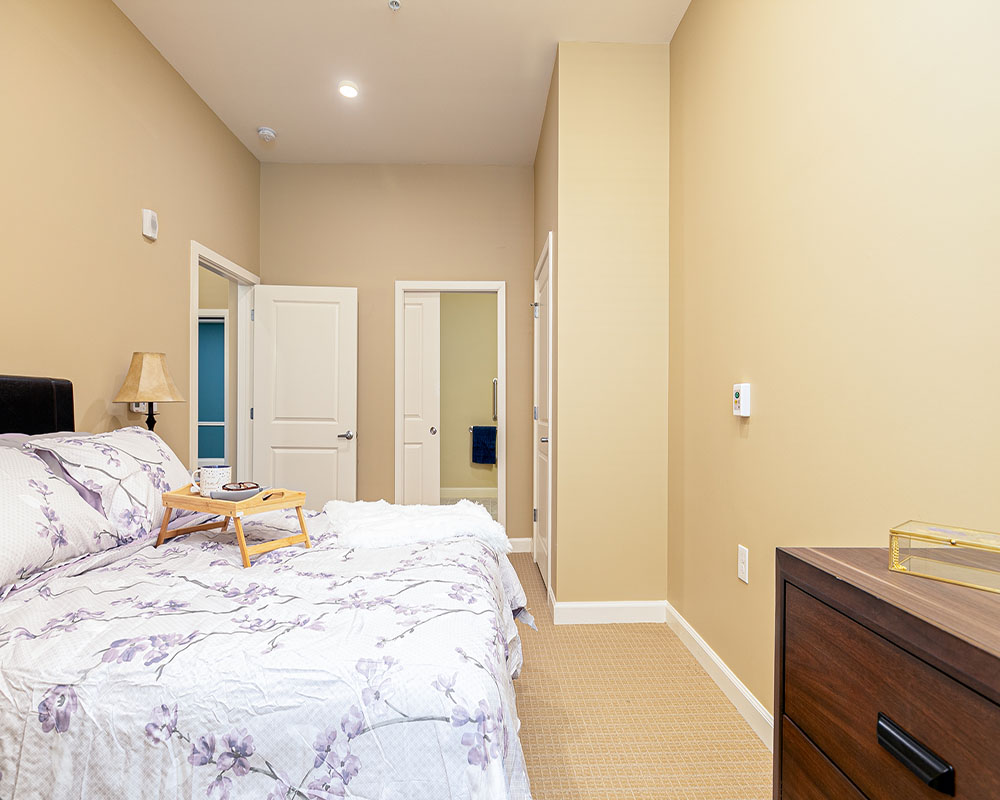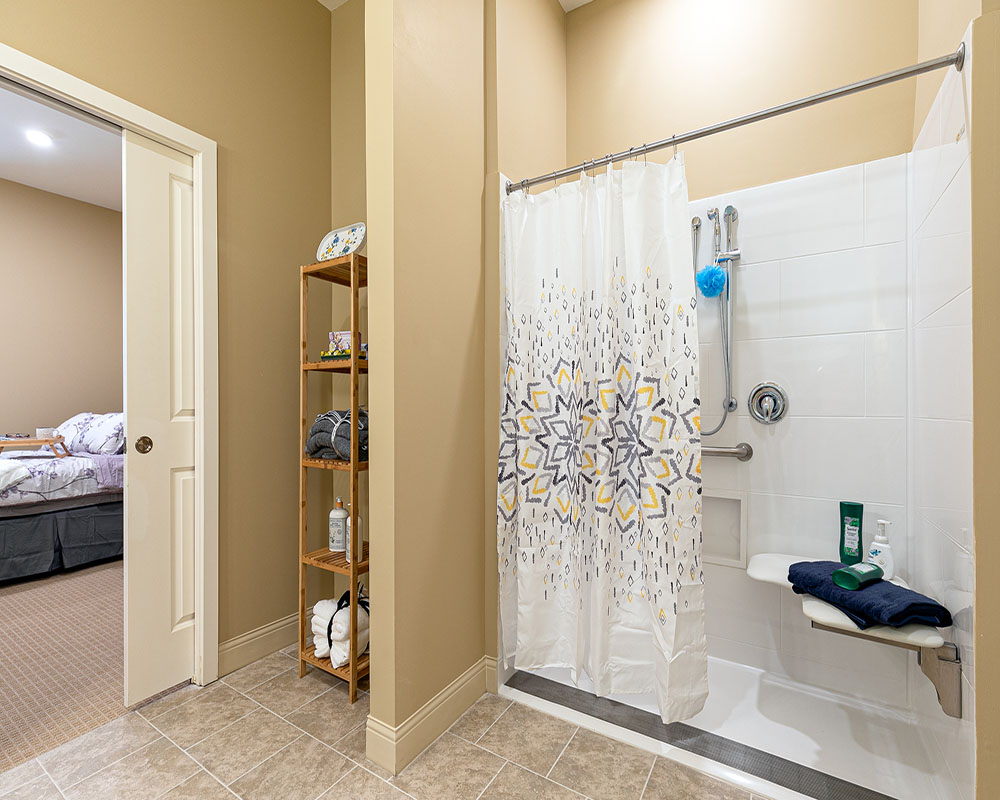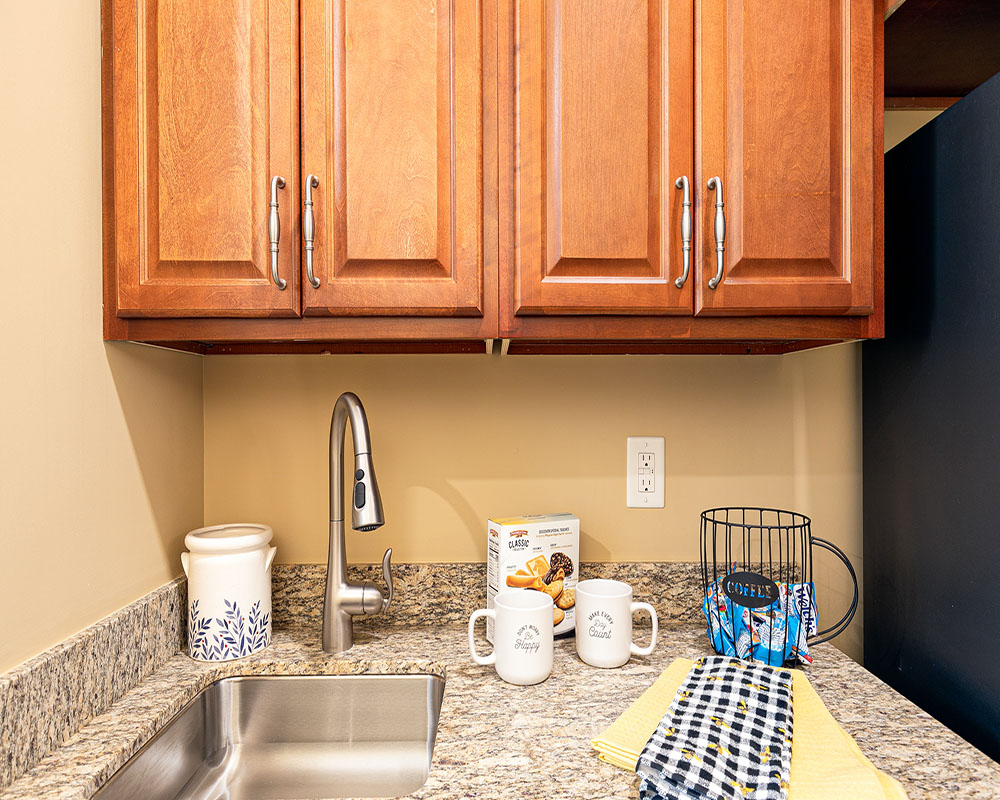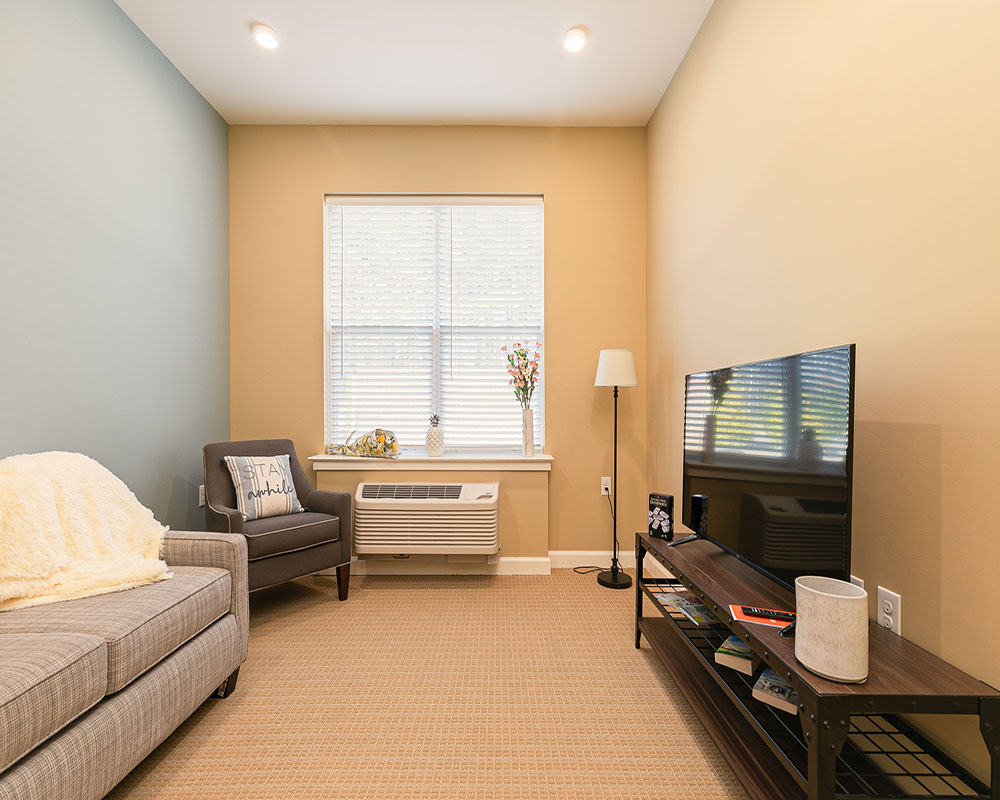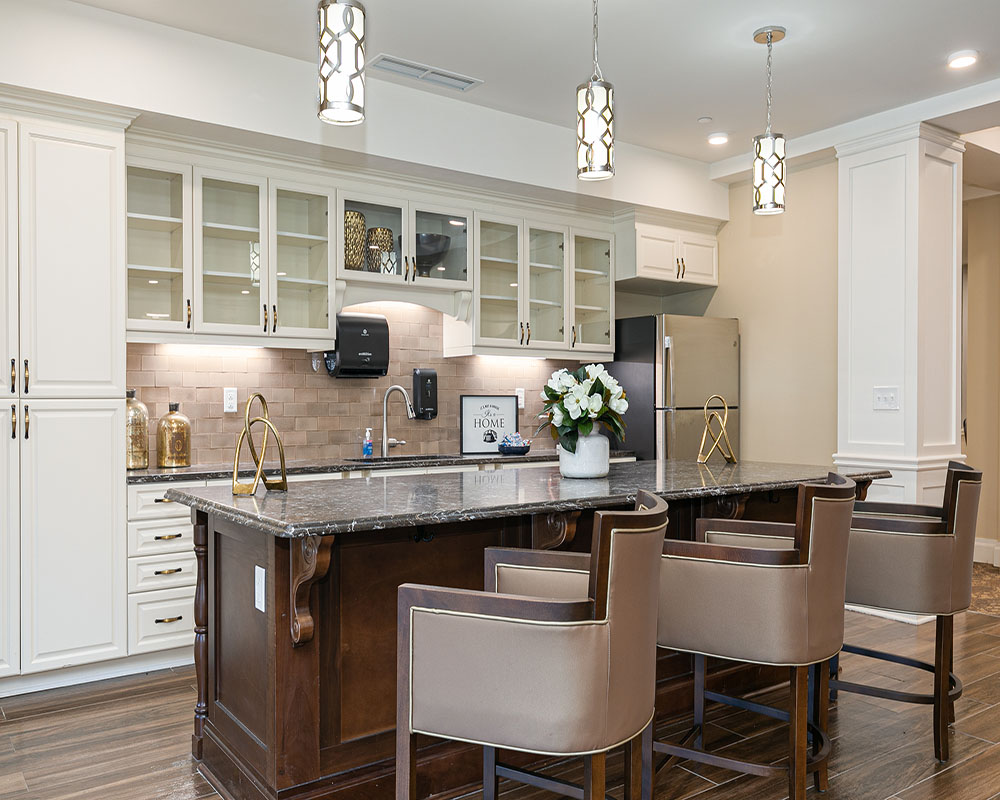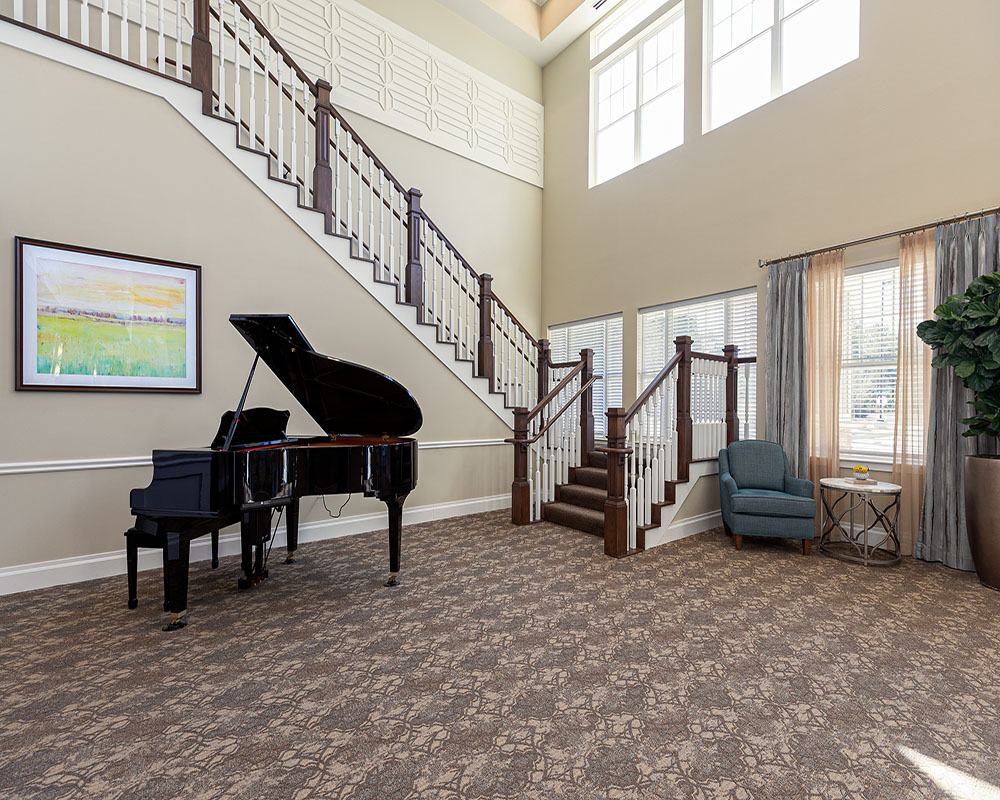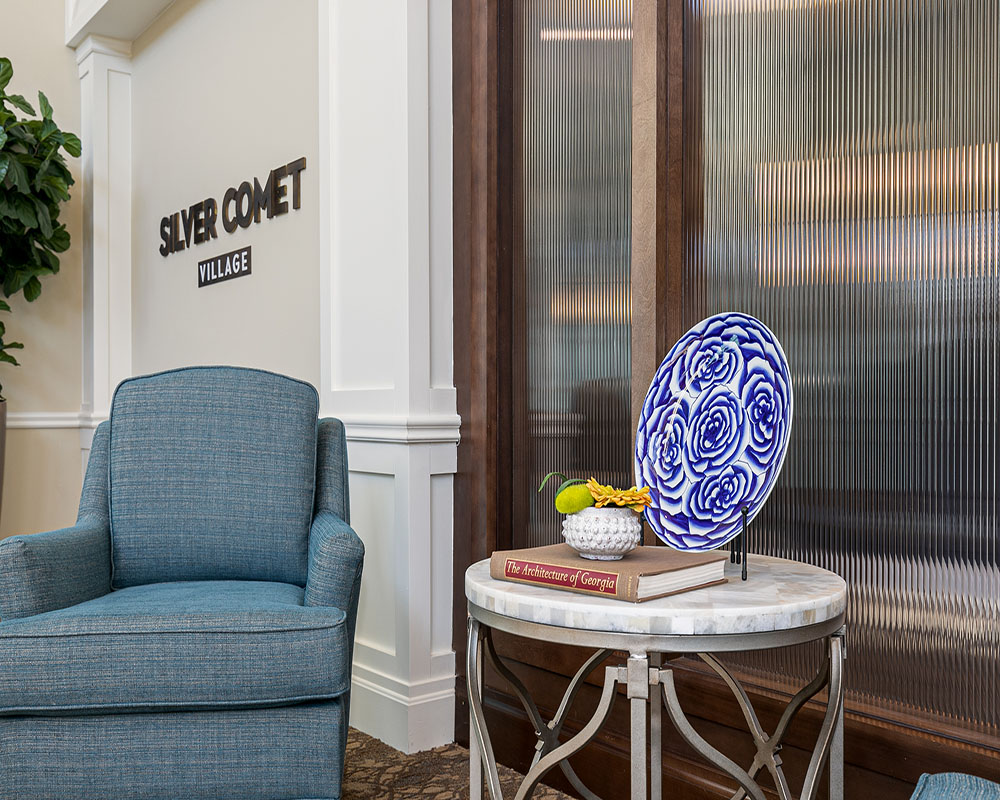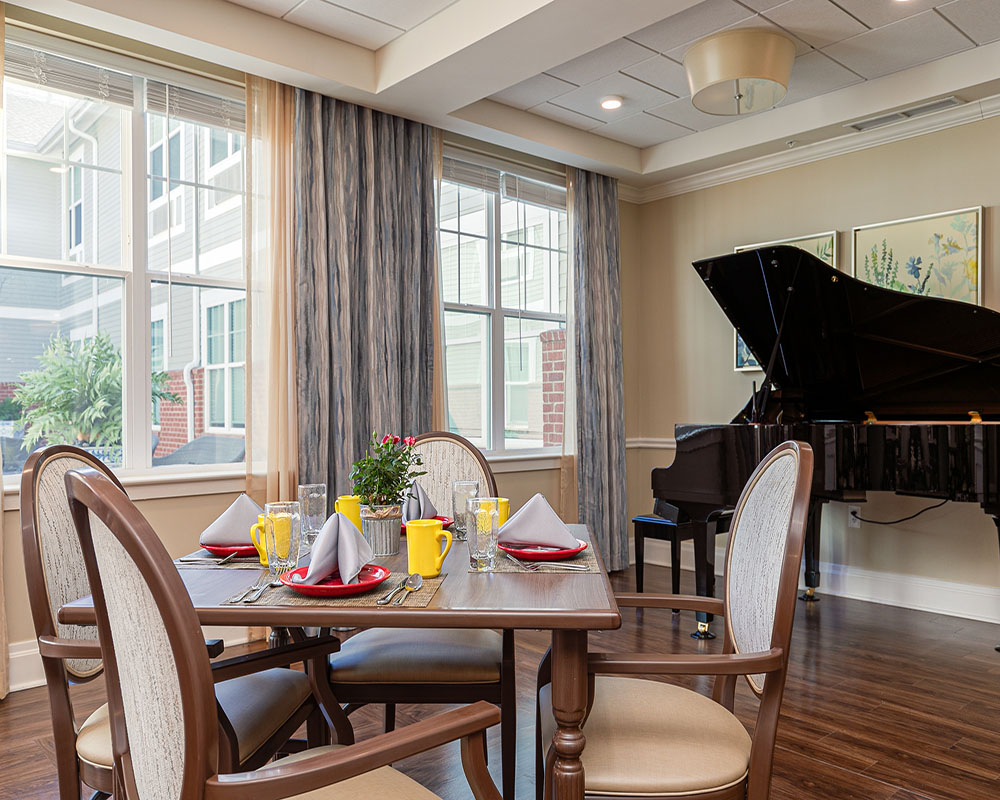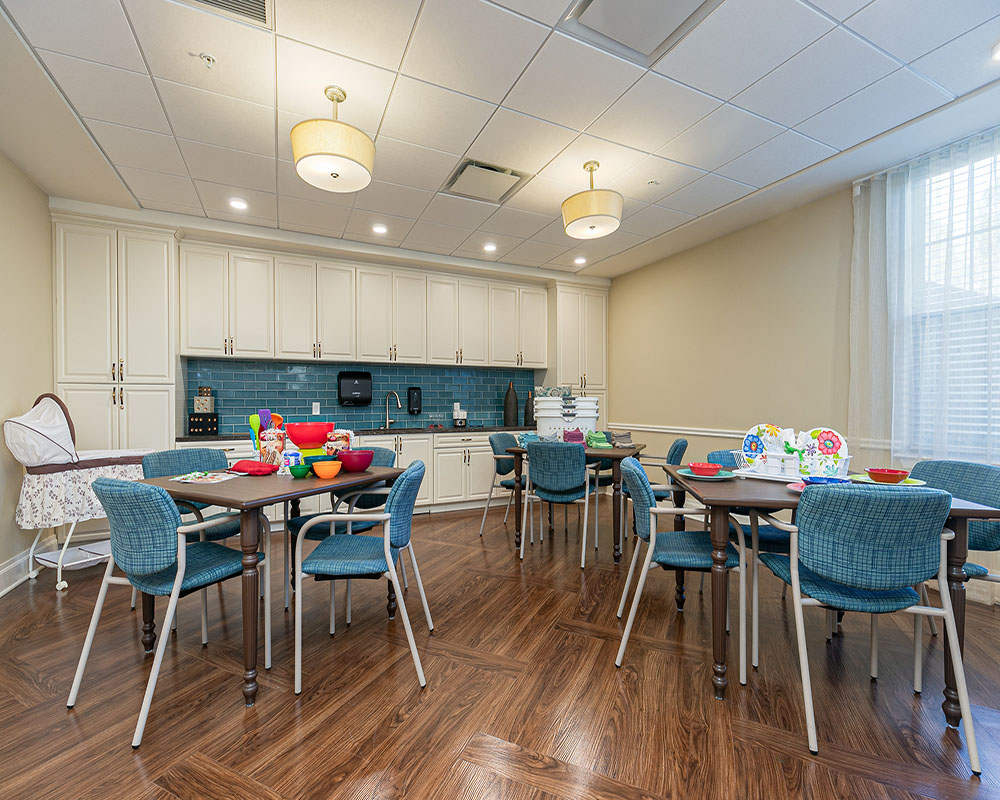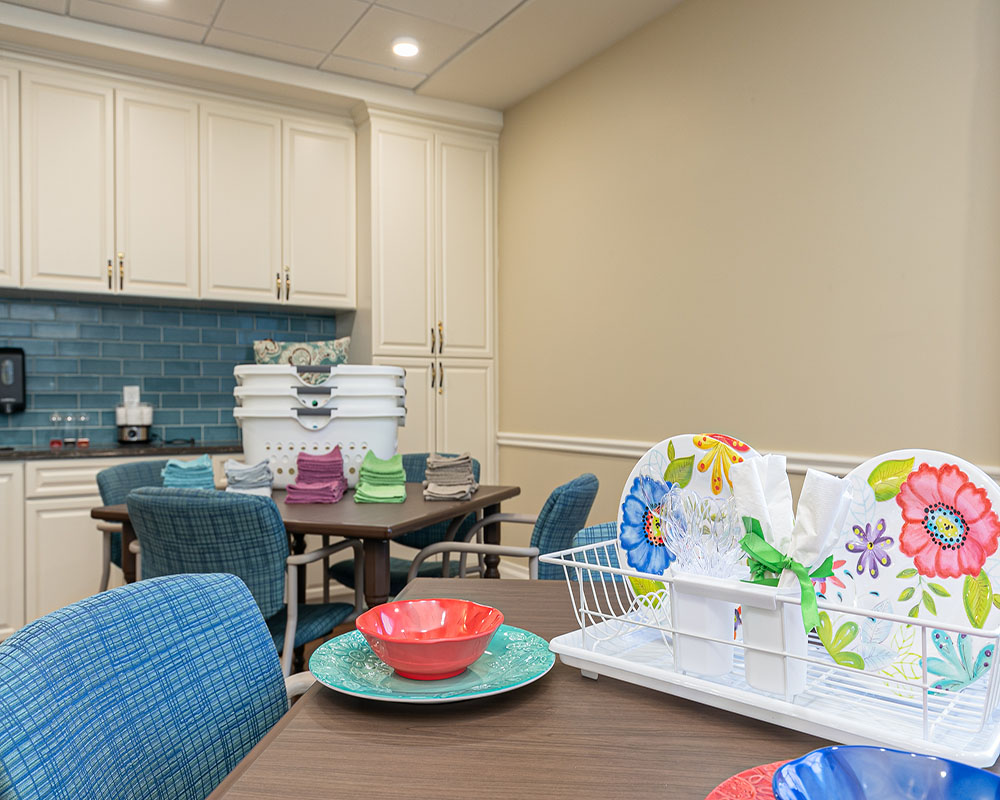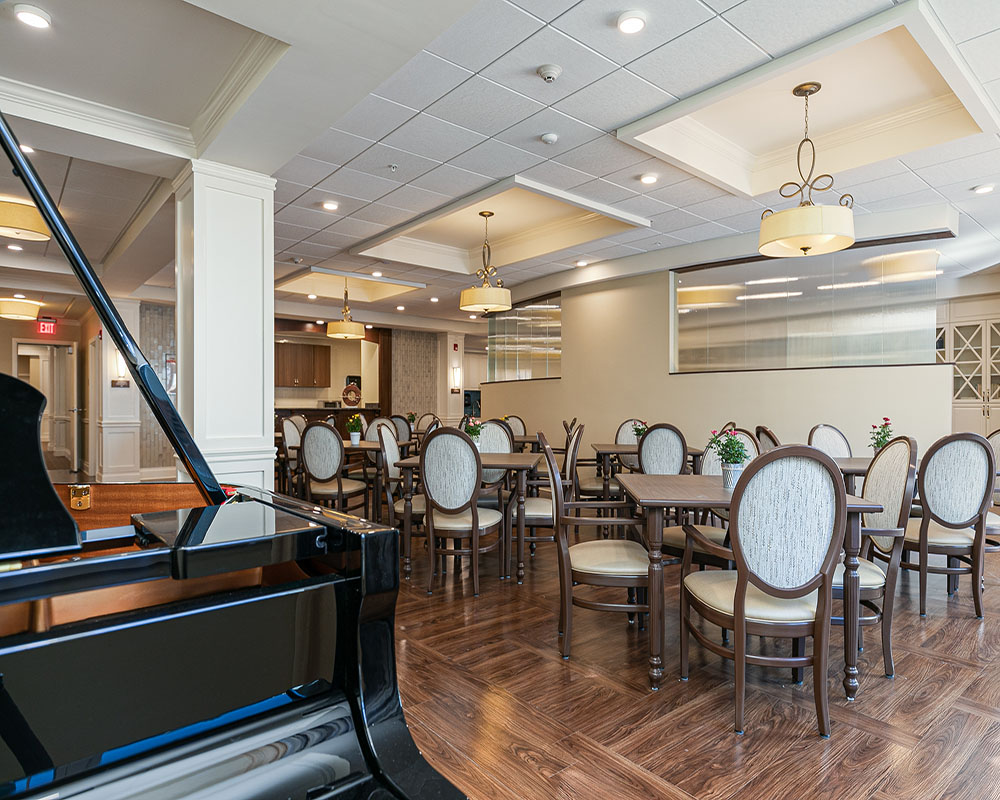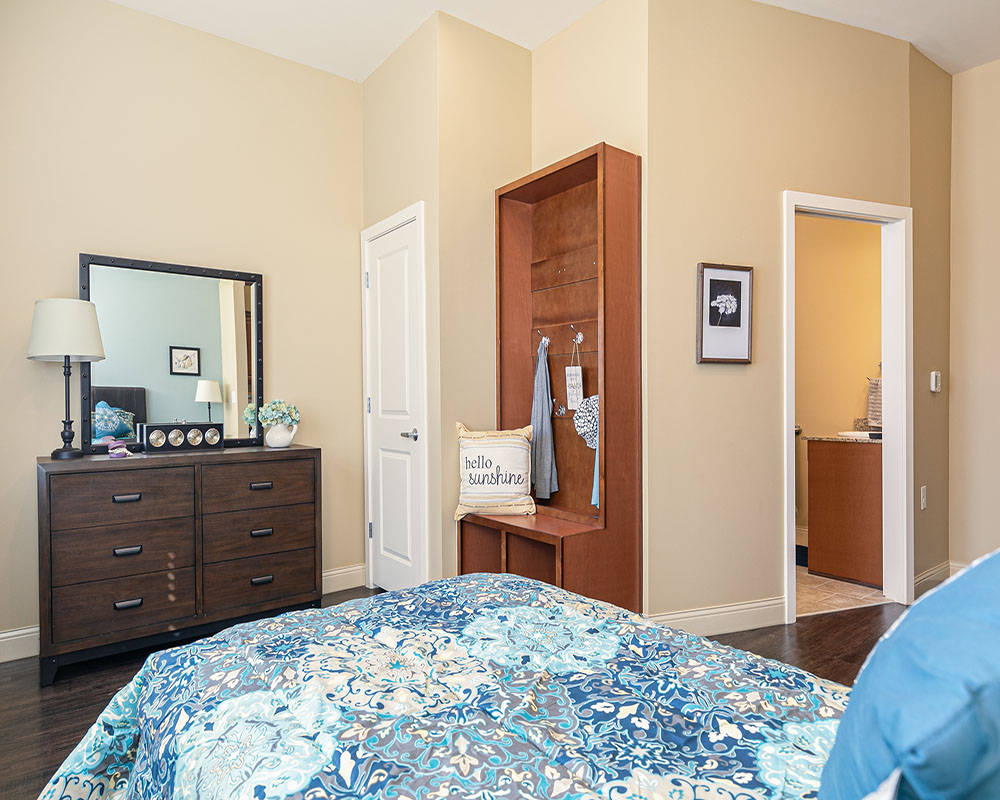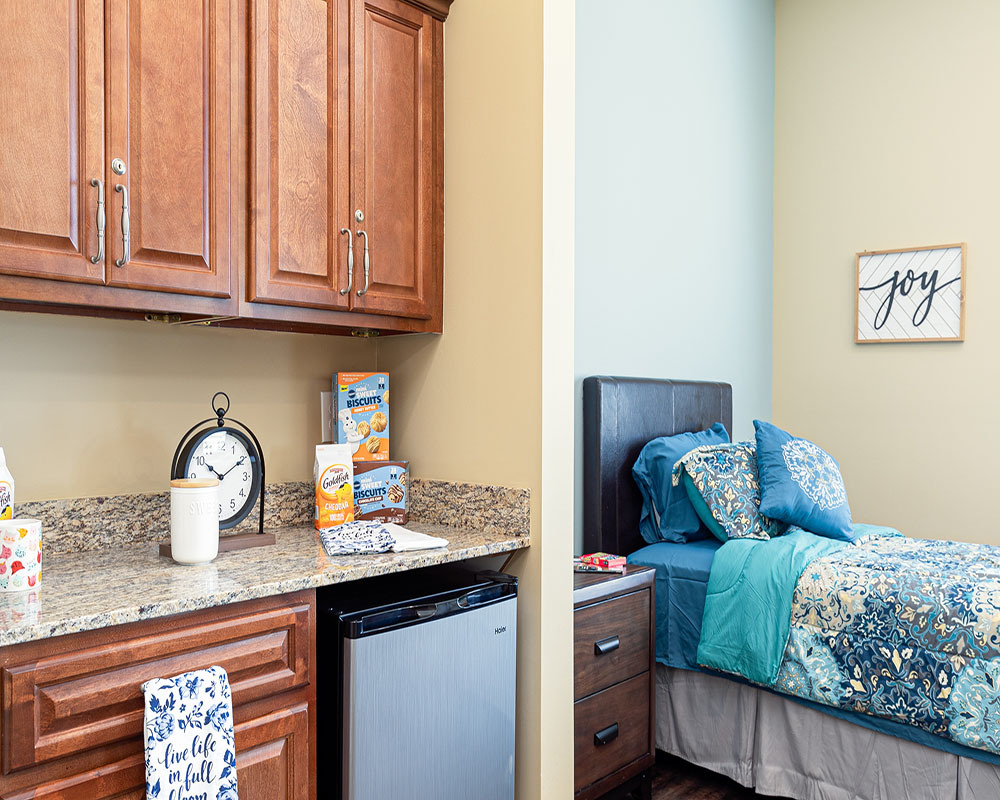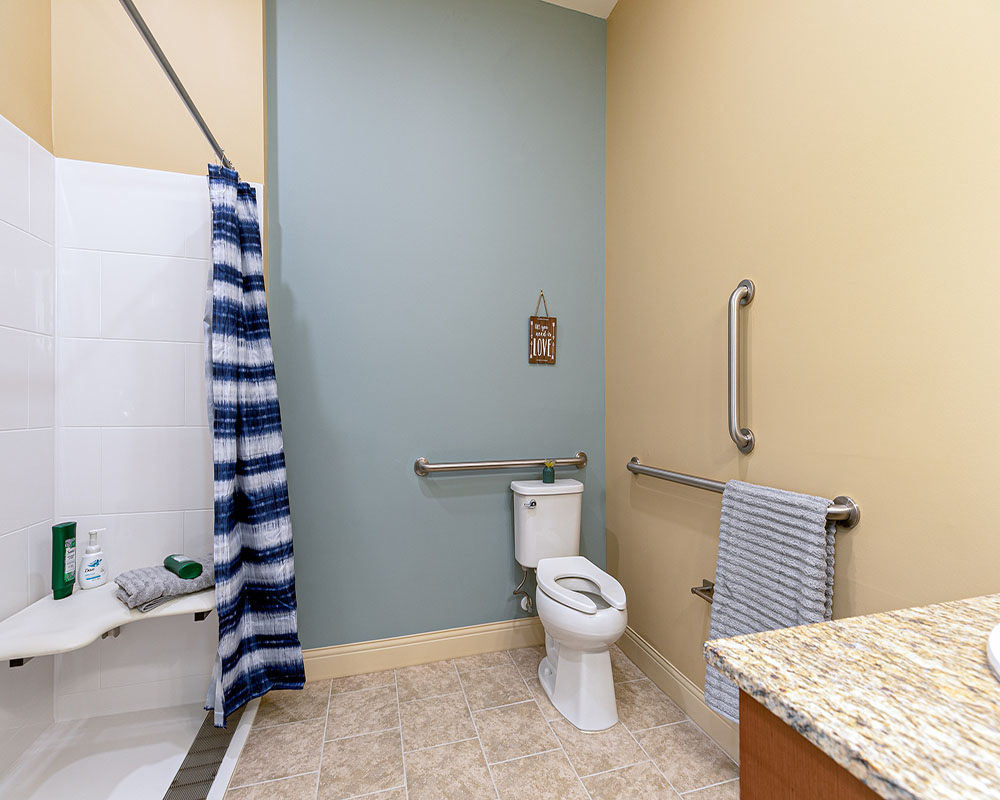moving with a pet
Moving into a new community can be exciting, but the process can sometimes involve challenging decisions. When seniors decide to move into assisted living, they and their loved ones might need to downsize or consider what services are needed. But moving choices can be limited when seniors are moving with a pet.
When you have a pet, they’re often a big part of when and where you decide to move. One survey found that 82% of seniors would not move without their pet, even if that meant delaying needed care.
Pets are wonderful companions, but they require care and an appropriate environment. Just like moving into an apartment building or renting a home, some owners have pet-friendly spaces while others don’t.
are pets allowed?
Pets are allowed in many assisted living communities, including Silver Comet Village! Still, seniors should confirm individually before moving into a new community. Pets come with various issues that depend on the pet type and temperament.
Furry friends, like cats and dogs, can be great for cuddling, but their teeth and nails might not benefit the furniture and floors. Some dogs are quiet, while others bark at the slightest noise, which might disturb neighbors. Allergies are another common concern, particularly in communities with multiple shared spaces.
Pets with tanks or cages come with other concerns. For example, fish tanks can spring a leak, potentially causing water damage. Birds need a lot of attention. Germs carried by reptiles and amphibians are a greater risk for seniors and people with weakened immune systems.
Before bringing a unique pet into a new community, double-check with your community to see if there are bans or special rules for pet types.
benefits of pet companionship
There are many benefits to having a pet companion at any age. But how can pet ownership benefit seniors?
social connections
Strengthening social connections can help keep seniors emotionally, mentally, and physically healthy. Pets have a twofold benefit for socializing:
- Pets reduce loneliness: Seniors who live with a pet can enjoy full-time companionship with a pet. They have someone to talk to, play with, sit with, or cuddle.
- Pets increase social connections: Many people who’ve owned a dog can tell stories about how many people they meet on walks thanks to their canine. Whether seniors discuss their pets with social groups or enjoy pet-themed activities, pets can provide countless social opportunities.
A unique pet or pet-related experience can be something to bond over with new friends and neighbors. Seniors may join a pet club, a walking group, or shopping excursions for pet supplies. Even when physical mobility is limited, pets give unconditional love, which is why animal-assisted therapy (AAT) or pet-facilitated therapy (PFT) is common.
physical health & activity
Depending on the activity requirement of your furry friend, walking the dog or playing with the cat is crucial for their physical health. It’s also a way for seniors to stay active. Pet ownership can benefit cardiovascular health, decreasing the risk of diabetes, obesity, and hypertension.
Keeping a pet active can be challenging for seniors with limited mobility. However, there are many ways to add physical activity without intensive exercise. Engaging with a pet and spending time with them can inspire various movement-based activities.
Some easy things seniors can enjoy with a pet include:
- Enjoying swim time, as swimming is easier on the joints
- Learning new tricks (the adage about old dogs is a myth)
- Playing games like fetch or tug-of-war
- Using walking paths for brisk or light walking
- Try puzzle toys to keep their mind and nose sharp
cognitive health
Having a pet around can help a residence feel like a home. Living with a constant, loveable companion can reduce stress and help seniors live in the moment—instead of worrying about the future.
Studies have found multiple mental health benefits for seniors with conditions causing cognitive decline, including dementia. Research has found pets can:
- Decrease aggression & agitation
- Encourage social interaction
- Facilitate goal achievement
- Improve nutritional intake
- Reduce anxiety & phobias
- Reduce caregiver burdens

establishing a routine
Caring for a pet requires a routine, resulting in senior owners practicing daily routines to keep their pets happy and healthy. The routine might include feeding, cleaning, exercise, and playing.
While some people love the idea of predictability and others prefer the freedom of choice, establishing a routine—even a flexible one—has multiple benefits.
Establishing a daily routine can help people:
- Feel focused & in control
- Lower stress levels
- Maintain nutrition & diet needs
- Stay physically active
- Take better care of their health
Practicing a daily routine is beneficial for daily activities and interaction, but it’s also crucial for healthy sleep. Many older adults struggle to get a good night’s sleep. But a consistent bedtime can help seniors experience better quality rest for a longer duration.
feeling at home in assisted living
Seniors can get the care they need without leaving their pet companions behind. We welcome seniors and their pets at Silver Comet Village to make our community their home. If seniors or their loved ones have questions about moving into assisted living with a pet, we’d love to help!
Schedule a visit to get to know us, or contact us to learn more!

